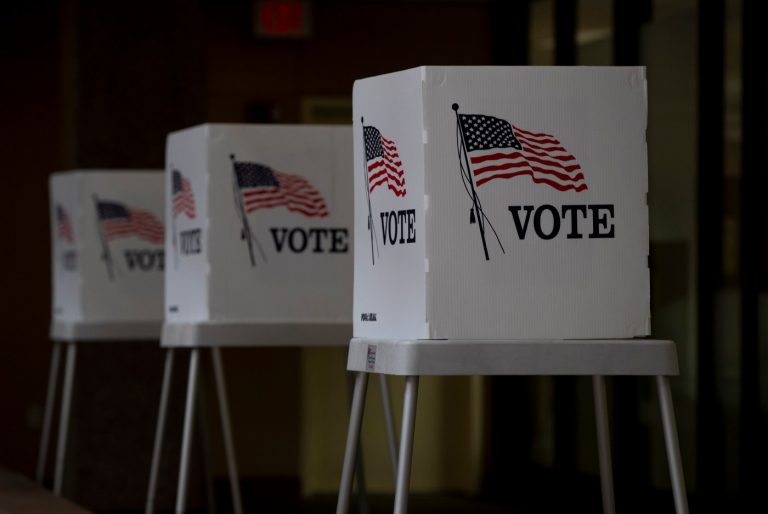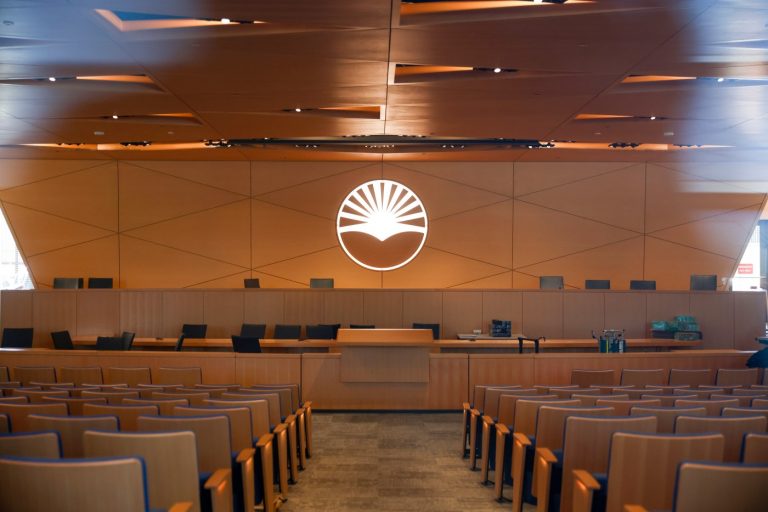The victim in the child sex assault case against a 35-year-old Solano County man was “stuck in a lie,” suggesting fabrication of abuse “that doesn’t make sense,” said the lead defense attorney during her closing argument on Friday.
Meanwhile, the prosecutor, in his rebuttal statement, told jurors that Deputy Public Defender Pamela Boskin “ignored the victim’s testimony in court,” and it was consistent with the victim’s statements made to Vacaville police investigators during the first of two interviews three years apart.
“It’s not a reasonable conclusion” to assert that the victim made up a story and that, as a young teenager, she “described what happened in a way that only a 13-year-old can describe,” said Deputy District Attorney Luke B. Leichty.
Standing at the lectern as he ended his final remarks at 4 p.m. in Department 1 of Solano County Superior Court, Leichty looked directly at the 12 jurors, saying they had an opportunity” to hold Timothy J. Martinez accountable for eight felony charges.
After nine court days, the jury will begin deliberations at 10 a.m. Tuesday in the Justice Center in Fairfield.
Out of custody on bail, Martinez is charged with some seven counts of lewd and lascivious acts with a child under 14 and one for aggravated sex assault involving oral copulation.
Two of the original 10 counts were dropped, Judge Jeffrey C. Kauffman, who is presiding over the trial, noted before the attorneys made their final statements.
At the outset of his closing argument during the morning session, Leichty noted the alleged sexual abuse by Martinez, who is related to the victim, occurred during a five-month period, from late November 2018 to late April 2019 in a two-story home in Vacaville. (The Reporter typically does not identify victims of sexual abuse.)
He called the sexual assaults “the deepest” kind of betrayal, then showed a video, with audio, of the 13-year-old victim making statements to a Vacaville police investigator. She appeared to have a clear recollection of what occurred in several instances of the alleged molestation, saying in an elevated and agitated tone that what happened — episodes of fondling, oral sex and intercourse — was “not right,” that the relative was “supposed to be teaching me the difference between right and wrong.”
Leichty told jurors that she was “telling the truth about what happened.” (Under California law, the direct evidence of one witness can prove any fact, but cautions a jury to review carefully all the evidence before accepting the single-witness testimony.)
He recalled her testimony that began two weeks ago. The victim, now 18 and a college student in North Carolina, remembered Martinez coming into the large downstairs room on the first floor, where she slept, that he allegedly began touching her in a sexual manner as she tried to watch a TV program, and apologized a day later.
At other times during her in-court testimony, Leichty reminded, she stated she did not want the sexual activity, stood up and backed up against the wall and away from Martinez during one instance and became angry.
He recounted that the frequency of the sexual assaults occurred once weekly, on weekends, and recalled an instance when Martinez is alleged to have engaged in oral sex with her in the master bedroom’s shower, and instances of sexual intercourse.
Leichty said her descriptions of what happened indicated her credibility and that Martinez engaged in “substantial sexual conduct” with her.
He then reminded the jurors about various witness statements and also her statements made to Greg Teplansky, a deputy with the San Bernardino County Sheriff’s Office, when the victim lived in Trona, a desert town, during her high school years.
The victim made statements in the recorded interview with Teplansky, a second interview in 2022, that, in some instances, were at odds with the victim’s statements in 2019, which Leichty acknowledged. However, he conceded, as years pass, a human being’s memories are not absolutely clear.
He called the defense’s suggestions of the victim’s questionable mental health “a distraction.”
Leichty said Martinez picked the victim because the defendant thought, “Who would believe her?”
The prosecutor also recalled the testimony of Blake D. Carmichael, an associate clinical professor with UC Davis Health Children’s Hospital, who described child sexual abuse accommodation syndrome, or CSAAS.
Leichty recalled that Carmichael said sexually abused children try to resolve the experiences in four ways: Secrecy, helplessness, entrapment and accommodation, and “delayed and conflicted disclosure,” that they generally do not report it immediately.
As he spoke, Martinez, seated at the defense table and dressed in a black suit, a maroon shirt and striped tie, appeared to closely follow the statements by Leichty, who also noted a witness testified that most allegations fo child sexual abuse are true.
At the beginning of her closing statements, Boskin described the victim in 2019 as middle school student struggling, “cutting herself,” and “self-harming,” that she was hearing voices. She called Martinez “a hard worker” who enjoyed a couple of beers after work.
She said the victim’s “struggles were not regular struggles” and was seeing a therapist once-weekly and getting “intensive mental health services.”
Boskin asserted that the victim would say things to friends “that would get the attention from her peers,” and that those statements were “the context in why the allegations were made.”
She reminded the jurors that the allegations in a criminal case must be proved “beyond a reasonable doubt” and to consider “the quality” of the victim’s testimony, which she repeatedly called “inconsistent.”
At one point Boskin reminded jurors that the victim told an investigator “that this is where my mind went blank,” referring to an alleged distressing sexual encounter with Martinez.
The victim’s inability to recall some details “should give you doubt,” she told jurors.
Boskin also cited the interview with Teplanski, saying the victim could not accurately remember how many times Martinez had sexual intercourse with her.
Related Articles
Man found fatally stabbed near Pleasant Hill Park where he worked
S.F.: Attorney faces ethics charges after awarding himself $1.3 million in trust fees
Man charged in stabbing of Burlingame hospital employee
One arrested following shooting Friday night at UC Berkeley
Boy shot and killed in unincorporated San Leandro
“Omissions are inconsistencies,” she said, keying on a theme of her argument, the credibility of the evidence, that some of it “did not make sense.”
At one point, she suggested that the victim contrived stories about the alleged sexual abuse, confusing “what actually happened” with something the victim saw in a movie or read about.
Boskin also claimed that Martinez was unlikely to have sex with the victim, who he knew was seeing a therapist.
“Doesn’t make sense,” she said.
Additionally, there was no police investigation after the victim reported the alleged crimes to a therapist, no recovery of bedding, no collection of DNA, and, thus, no corroboration that the abuse occurred.
The victim, she said, made statements over the years and eventually became “stuck in a lie.”
In rebuttal, Leichty noted when the victim told her therapist and investigators what had happened, then, he added, “She lost both her parents. She’s been attacked and called a liar.”













+ There are no comments
Add yours